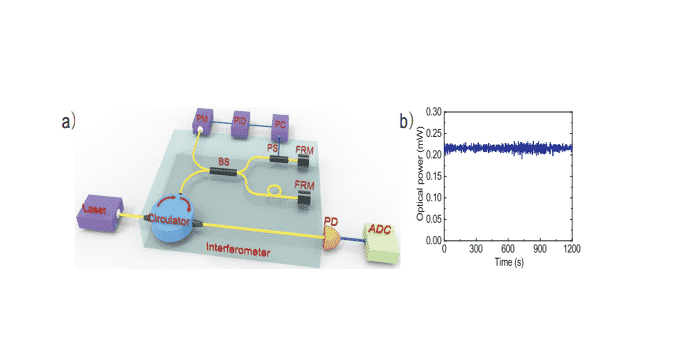World’s Fastest Quantum Random Number Generator Launched In China
The formula to make quantum cryptography successful is only possible if someone can produce quantum random numbers at the rate of tens of billions per second. The physicists in China claim that they have done it.
One of the most valued qualities of society is privacy. Sending private messages or carrying out financial transactions without the fear of being observed remains at the heart of many government, commercial and military activities.
Quantum cryptography is that one technology that lets this to be done in a better way, and it needs a very strong source of random numbers.
Although, there is a glitch to it. It is very difficult to generate random numbers in large quantities. One that is essentially random and one of the best sources is the quantum world. However, the best commercially quantum random number generators that is ready for use only manufacture them at a rate of a million per second, which is far less from the many tens of billions per second that many applications need.
Thanks to the work of You-Qi Nie at the Hefei National Laboratory for Physical Sciences in China that seems to have changed and a few friends who claim that they have developed a quantum random number generator that has the ability to produce 68 billion of them per second. They claim that this technique should take off an significant barrier that stops the governments, the military, and the rest of us from taking advantage from perfect security.
Random numbers should not be able to predicted and not reproducible, and this strikes off producing them using normal algorithmic processes, which are likely to be able to be predicted and produced again. It’s been long known by computer scientists that programs which claim to generate random numbers often turn out to do nothing of that kind.
As an alternative, physicists have moved to natural processes to generate random numbers. Turbulence, for example, is thought to be completely random so ascertaining the size, amount or degree of that turbulent consequences that the atmosphere has on a laser beam is one method of generating random numbers, although a rather slow one and one that could without any difficulty show inclination towards environmental factors.
That is the reason why physicists tend to choose to use quantum processes to produce random numbers. These are important as they are thought to be random in principle and fundamental in nature, which means there cannot be some underlying physical process situated under that may bring in predictability.
Many ways have been tried by the physicists to produce quantum random numbers. Sending a stream of photons via a beam splitter is one of the most popular that sends or shows them with a 50 percent probability. Merely counting the photons that are shown or sent generates a random sequence of 0s and 1s.
That’s precisely how the world’s only commercially available quantum random number generator works. However, the speed is restricted to about one megabit per second as the single photon detectors are unable to count quickly than this.
The physicists of late have started to mess about with a new technique. This emerges from the two different ways photons are produced inside lasers. The first is by stimulated emission, which is a process that can be predicted and generates photons that all have the same phase. While the second is an completely random quantum process, which is known as spontaneous emission. These photons are usually considered as noise and are in any case flooded when the laser is operating at full slope.
However, when the laser operates at its threshold level the spontaneous emission becomes important, before it actually takes hold. It may be possible to exploit their random nature, if it is possible to measure these photons.
You-Qi and co have done exactly that. They have designed a interferometer that can be easily affected due to fluctuations in the phase of photons into intensity changes. That’s significant because intensity changes can be easily measured using conventional photodetectors that work at much higher rates than single photon detectors.
That has allowed the team to measure these random changes and digitize them at a rate of 80 Gbps. This data stream then has to be cleaned up in various ways to remove any biases introduced by the measurement process. The team is however is still able to generate random numbers at the rate of 68 Gbps after this.
Any sequence of numbers is perfectly random cannot be guaranteed in any way. However, certain kinds of patterns can be found out by a set of standard tests, if they are present. You-Qi and co claim their random number sequences pass all these tests with flying colors.
The end result is the fastest quantum random number generator ever manufactured by some margin.
That outstanding work should make the ground ready for use for some mainstream applications using quantum cryptography. “Our demonstration shows that high-speed quantum random number generators are ready for practical usage, say You-Qi and co. “Our quantum random number generator could be a practical approach for some specific applications such as QKD systems with a clock rate of over 10 GHz.”
To sum up, many organizations that require a practical system that offers privacy assured by the laws of quantum physics may not have to wait much longer.

